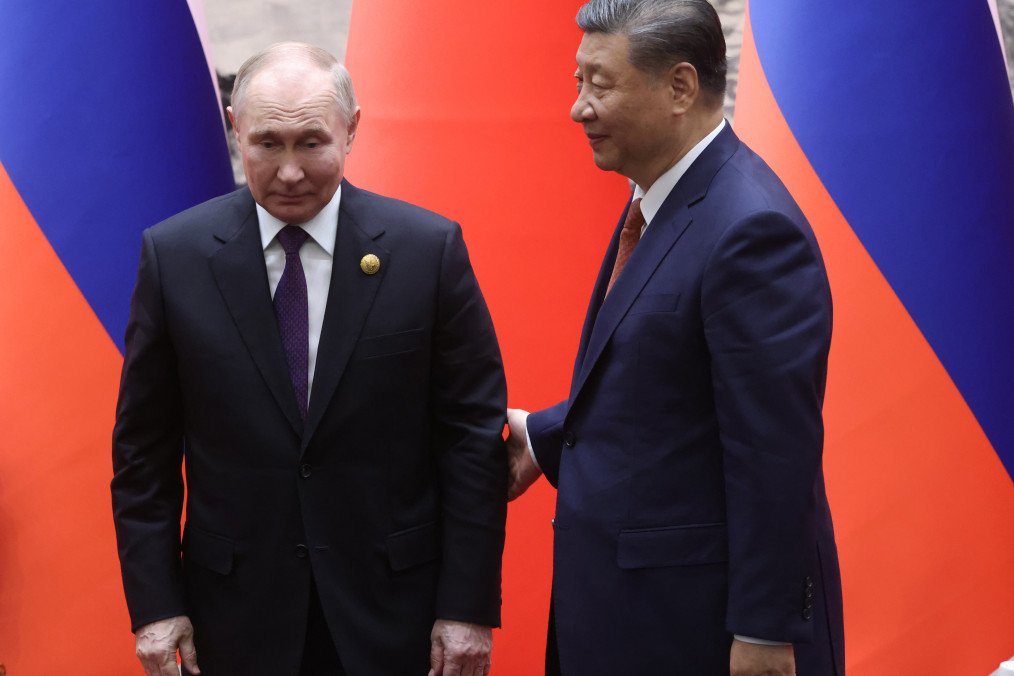- Category
- Business
Is There Still Room for Western Business Inside Putin’s Fortress Economy?

Talks over a potential thaw in US–Russia business ties and the return of Western firms to the Russian market are growing. But over the past three years, Russia’s business landscape has warped beyond recognition. Today, only Putin’s inner circle can operate with security, while the state’s methods of coercion have become openly aggressive.
Just recently, Russian leader Vladimir Putin held a meeting at the Kremlin with “business representatives.” Such events are typically ceremonial. Security services carefully vet participants, and only comments that align with Putin’s policy views are permitted.
In this instance, Russian business leaders likely had little to object to—Putin openly called for the suffocation of foreign businesses and described Russians’ use of Western web services as a “bad habit” that must be eradicated.
Once again, Putin reaffirmed his vision for the economy, one that closely mirrors the Soviet model, where citizens had minimal access to foreign-made goods.
In earlier years, Russia had attempted to promote innovation through initiatives like the Skolkovo Innovation Center, which was designed to foster nanotechnologies and the domestic production of high-tech goods. However, after a series of costly failures, the government adopted a more direct approach. For instance, in May, it banned the use of taxis manufactured outside of Russia or China.
Tellingly, the day after Putin’s talk with business leaders, in which he emphasized the need for domestic self-reliance and tighter control over marketplaces selling Western goods, he turned his attention to discussing a potato shortage, a staple of the Russian diet.
Alongside bans on all things Western, Russia has also quietly resumed a systematic nationalization of private assets reminiscent of the early Soviet era since the beginning of the war. Courts now routinely disregard legal standards, selectively transferring private property into state ownership.
Yet in many cases, these assets don’t remain in state hands for long. With the help of legal teams, they often end up in the hands of Putin’s closest allies.
Among the beneficiaries of this shadow nationalization are the Rotenberg brothers—longtime associates of Putin from his days in St. Petersburg and judo training partners. Their conglomerate, Roskhim, has acquired at least three such enterprises, though this represents just a small fraction of the overall process.
In 2019, the arrest of American citizen Michael Calvey, who founded Russia’s largest investment fund, Baring Vostok, in 1994, sparked a major media outcry. At the time, some prominent businessmen even defended him publicly, warning the state against meddling in business disputes.
Today, however, the imprisonment of Vadim Moshkovich—founder of one of Russia’s largest agricultural holdings and not even a vocal critic of the regime—barely raises an eyebrow. His legal troubles stem from a business dispute with individuals close to former President Dmitry Medvedev, who now acts as a kind of “shadow spokesman” for Putin, often issuing nuclear threats against the West.
Many companies around the world would likely consider returning to Russia once its war against Ukraine ends, hoping to resume business as usual.
However, Russia seems to have a very different view of that process. Lawmakers in the State Duma (lower house of the Russian parliament) are actively preparing legislation to eliminate the right of international companies to reclaim assets they abandoned when they pulled out of the country after Russia’s full-scale invasion of Ukraine. The vigor with which this bill is being advanced suggests it is likely to pass.
If Western businesses do attempt a comeback in Russia, they will find a very different country—a new market with new rules, or more accurately, no rules, no protections, and no recourse for anyone outside Putin’s circle.
-206008aed5f329e86c52788e3e423f23.jpg)
-270e13af43760897c8cb3e7f3ee9adf1.png)

-b63fc610dd4af1b737643522d6baf184.jpg)

-099180a164f53abb1128c9b5025a2b0e.jpg)
-46f6afa2f66d31ff3df8ea1a8f5524ec.jpg)
-4390b3efd5ecfe59eeed3643ea284dd2.png)